Dr. Monica Tadros, M.D., F.A.C.S. offers the latest and most advanced treatments for most allergies. Visit our allergy treatment centers in New York or New Jersey to meet Dr. Tadros, who can quickly alleviate symptoms associated with allergies. She provides the most comprehensive allergy testing as well as a wide range of safe and effective therapies, long-term treatment options, and immunotherapy to cure your allergy.
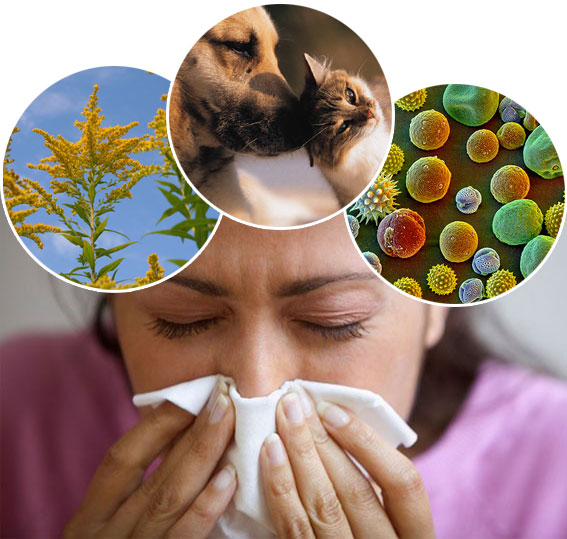
As a dual board-certified specialist Dr. Monica Tadros, MD, offers a broad range of services for patients suffering from allergy issues in NYC & NJ.
She was a Professor of Otolaryngology-Head & Neck Surgery at the prestigious Columbia University in 2006, where Dr. Tadros taught many generations of residents and medical students. With each allergy treatment, a center for cosmetic surgery aims to deliver the best allergy treatment in Englewood, NJ, and around the Bergen County area.
If you are experiencing any allergy issues, please call our center to set up an appointment at NYC: (866) 259-3844 or NJ: (866) 259-3844. Dr. Tadros is available to treat and diagnose most of her patients' allergies in NYC & NJ.

Quick Links:
Popular types of Allergies
Finding out exactly what causes your allergic reactions is half the battle. The other half is knowing how to treat them properly. Only a trained, experienced specialist like Dr. Tadros can determine an accurate diagnosis and proper treatment.
Here are the common types of allergies:
- Food allergy;
- Skin allergy;
- Dust allergy;
- Insect sting allergy;
- Pet allergies;
- Eye allergy;
- Drug allergies;
- Allergic rhinitis;
- Latex allergy;
- Mold allergy;
- Sinus allergy;
- Cockroach allergy.
ALLERGIES TREATMENTS & SERVICES
Asthma
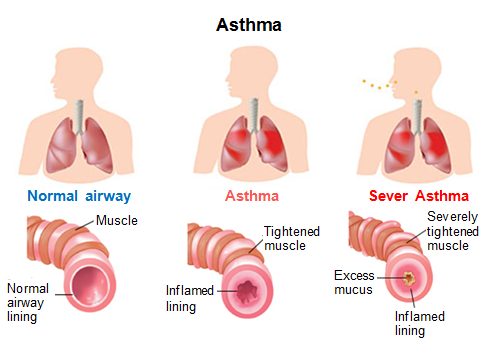
Asthma is a chronic disease of the lungs. Although it is chronic, not everyone with asthma has symptoms all of the time. Some individuals with asthma have symptoms that occur intermittently and can go several weeks or months with no symptoms at all. Others with more severe asthma may have symptoms every day.
The first step in treating asthma is to avoid one’s triggers. This could involve using different clothing in cold weather, avoiding strong odors (cleaning products) or cigarette smoke, keeping away from pets, and maintaining a dust-free environment. These steps can help one to decrease the frequency and severity of asthma symptoms.
Eye Allergies
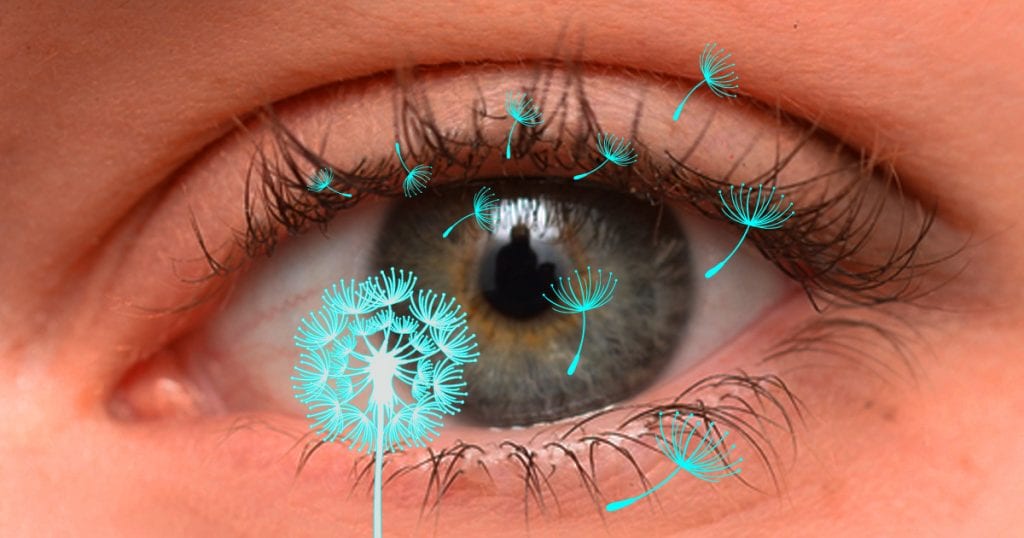
With eye allergies, your eye's surface comes in contact with an allergen such as pollen or dander, which produces an inflammatory response resulting in itching, redness, burning, and clear watery eyes. Most eye allergies are seasonal and occur during the spring, summer, and/or fall. Many New Jersey and New York patients also experience allergies all year round due to animal dander and dust, which may also be triggered.
Eye Allergy Symptoms
- Itching
- Redness
- Burning
- Clear discharge
- Often accompanied by dark circles under the eyes (allergic shiners), runny nose, nasal congestion.
Allergy Treatments
The first step in treating any allergy is avoiding your trigger factors such as pollen, dust, and animal dander. If pollen is your trigger, keep windows closed and stay inside during springtime when the pollen is high.
During high pollen, days wear sunglasses to decrease your eye's exposure to allergens. If animals are your trigger, make sure to keep animals out of your bedroom and especially off of your bed. After handling animals, wash your hands.
Food Allergies
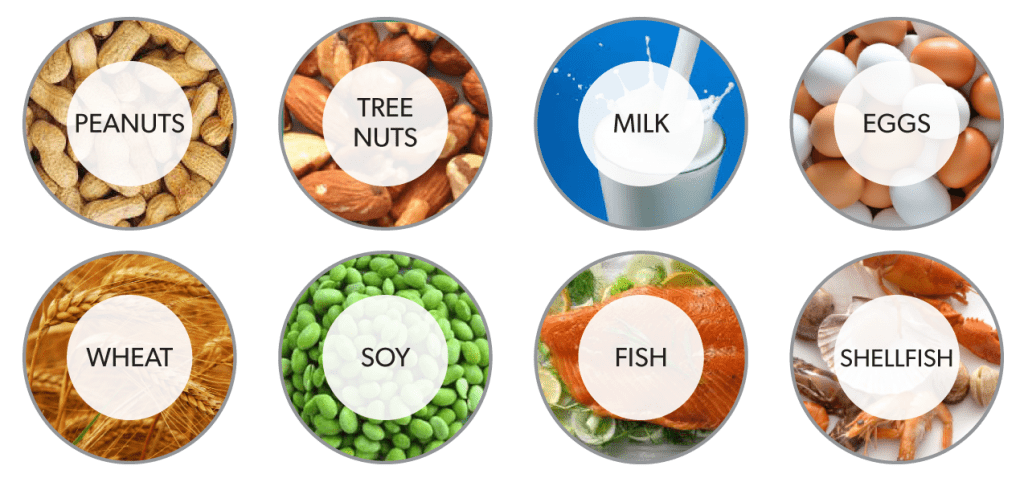
According to the Centers for Disease Control and Prevention, food allergies are estimated to affect 4 to 6 percent of children and 4 percent of adults. Food allergy symptoms are most common in babies and children, but they can also appear at any age and in adults.
While any food can cause an adverse reaction, eight types of food account for about 90 percent of all reactions:
- Eggs;
- Milk;
- Peanuts;
- Tree nuts;
- Fish;
- Shellfish;
- Wheat;
- Soy.
The primary way to manage a food allergy is to avoid consuming the food that causes you problems. Carefully check ingredient labels of food products, and learn what you need to avoid to prevent food allergy triggers.
Skin Allergies
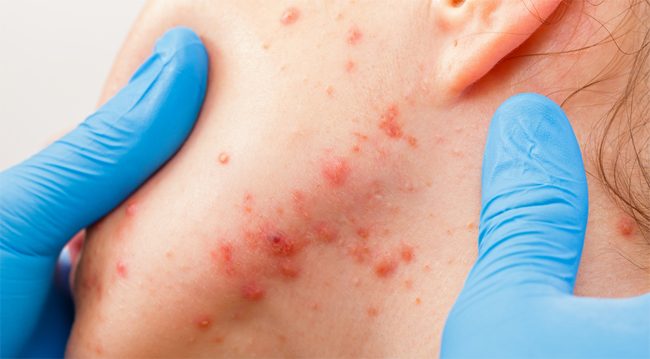
Bumps, itching, redness, and other skin conditions are very common today. Rashes can be caused by many things, including plants such as poison ivy, allergic reactions to a medication or a food, or an illness such as measles or chickenpox. Eczema and hives, both related to allergies, are two of the most common skin rashes.
Contact a leading skin allergy expert in New York City or New Jersey Dr. Monica Tadros to determine what is causing your skin allergies and the best available treatment.
Pet Allergies

If your nose runs and your eyes water or you start sneezing after playing with a cat or a dog, you likely have a pet allergy. These types of allergies can contribute to constant allergy symptoms if you may be around pets frequently. Cats and dogs produce multiple allergens that can be found on the fur and skin and in saliva.
Pet allergy symptoms may include:
- Sneezing or a runny or stuffy nose
- Coughing, chest tightness and shortness of breath
- Watery, red or itchy eyes
- Skin rash or hives
Drug Allergies
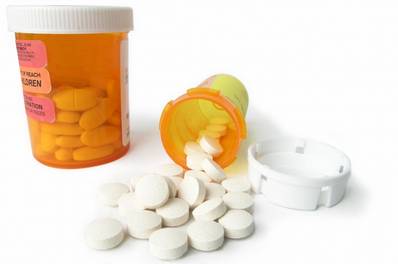
Many people do not experience an allergic reaction the first time they take a drug. However, the next time you take the drug, your immune system may see it as an invader, and you’ll develop symptoms as your body releases chemicals to defend against it.
Dr. Tadros suggest that patients with drug allergies may experience symptoms regardless of whether their medicine comes in liquid, pill or injectable form.
These symptoms may include:
- Skin rash or hives
- Itching
- Wheezing or other breathing problems
- Swelling
- Vomiting
- Feeling dizzy or light-headed
- Anaphylaxis
If you have a drug allergy:
- Make sure all of your doctors are aware of your allergy and the symptoms you have experienced.
- Ask about related drugs that you should avoid to prevent any triggers.
- Ask about alternatives to the drug that may have caused your allergic reaction.
Sinusitis
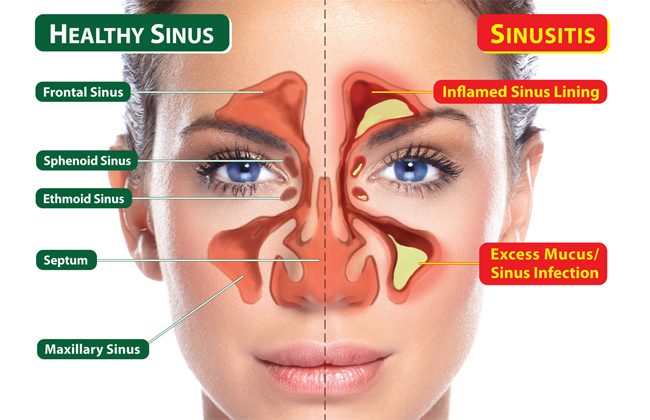 Sinus disease is a major health problem and it affects 31 million people in the United States. People who have allergies, asthma, structural blockages in the nose or sinuses, or people with weak immune systems are at greater risk.
Sinus disease is a major health problem and it affects 31 million people in the United States. People who have allergies, asthma, structural blockages in the nose or sinuses, or people with weak immune systems are at greater risk.
Common symptoms of sinusitis include:
- Postnasal drip;
- Discolored nasal discharge (greenish in color);
- Nasal stuffiness or congestion;
- Tenderness of the face (particularly under the eyes or at the bridge of the nose);
- Frontal headaches;
- Pain in the teeth;
- Coughing;
- Fever;
- Fatigue;
- Bad breath.
If your sinus disease lasts longer than eight weeks, or if standard antibiotic allergy treatment is not working, contact our center in New York City or in New Jersey to help you diagnose the problem. Dr. Monica Tadros will examine your nose or sinus openings and offer the best available allergy treatment for you.
Allergy Treatment Consultation
To diagnose and treat your allergy problems in Englewood, NJ, and the Bergen County area, Dr. Monica Tadros uses methods that have been shown to identify specific allergens and achieve effective control of allergies quickly.
Visit our center in New York or New Jersey to experience a comprehensive treatment for your allergy. Please contact us today in NYC: (866) 259-3844 or NJ: (866) 259-3844 to speak to one of our Patient Advisors to receive additional information on allergy treatments. You may also use our contact form to schedule your no-obligation treatment consultation.
